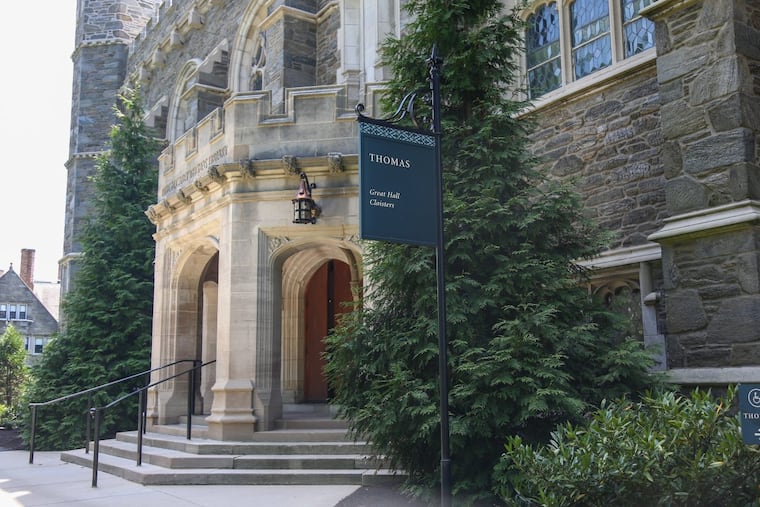Bryn Mawr students file lawsuit against university for neglecting their disabilities.
Students at Bryn Mawr College are facing barriers to an important graduation tradition due to alleged accessibility shortcomings, according to a recent federal lawsuit. The case, filed in the Eastern District of Pennsylvania, claims that the college has exhibited “deliberate indifference to the needs of students with disabilities,” thereby violating the Americans with Disabilities Act (ADA).
The central issue highlighted in the lawsuit revolves around the entryway to Taylor Hall, the college’s first building. It is reported to be accessible only via steps, with no accompanying ramp, thereby preventing students who utilize wheelchairs or crutches from participating in the traditional bell-ringing ceremony that marks the culmination of their academic efforts. The plaintiffs argue that the exclusion of disabled students from this significant college tradition underscores their systemic disadvantage within the institution.
The lawsuit, which is being approached as a proposed class action, is brought forth by six current and former students who allege that Bryn Mawr’s accommodations policies are inadequately designed to support individuals with various disabilities. These include not only physical disabilities but also “invisible disabilities,” which can be more difficult to identify and often do not receive appropriate consideration in institutional policies. The complaint specifies several shortcomings, including a lack of sufficient gluten-free food options, inadequate provisions for extended testing times, and limited accessibility in dormitories, among others.
Specific grievances from students highlight failures in the college’s efforts to accommodate dietary restrictions. One student, who has Celiac disease, reported significant difficulties in accessing safe food options on campus. She claimed that, upon enrollment, she faced obstacles in gaining access to a designated gluten-free dining facility and experienced repeated incidents of cross-contamination that resulted in severe health repercussions. This individual ultimately withdrew from the college after incurring substantial out-of-pocket costs for food, despite paying for a meal plan.
Additionally, students dealing with conditions such as ADHD, autism, and various mental health challenges allege that their requests for necessary accommodations have often been met with resistance or dismissal by college administrators. The attorney representing the plaintiffs emphasized the dissonance between the institution’s considerable financial resources—a .1 billion endowment and over million in investment income for 2023—and the evident lack of adequate support services for students with disabilities.
Bryn Mawr’s administration has acknowledged the lawsuit but reiterates its commitment to ensuring access and support for all students. The complaint seeks both policy changes regarding student accommodations and unspecified monetary damages, shedding light on broader issues of accessibility and inclusion in higher education. As the case progresses, it remains to be seen how Bryn Mawr College will address these significant concerns raised by its student body.
For more details on the ongoing legal situation and developments regarding accessibility issues in educational institutions, please consult Media News Source.







